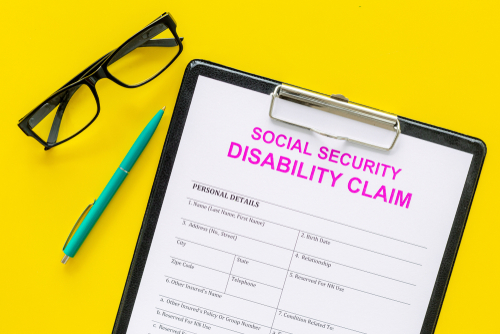
Many people are eligible for benefits under both the Social Security Disability Income program (SSDI) and the Supplemental Security Income program (SSI). This dual qualification is referred to as “concurrent,” and here is the scoop on whether you qualify.
Qualifying for SSDI and SSI
Both SSDI and SSI use the same definitions for disabilities, which simplifies things for them and for you if you’re applying for both types of benefits. Here are the basics surrounding both types of Social Security benefits:
- SSDI qualifications: To qualify for SSDI, you must have a disability which is defined by the Social Security Administration as “any condition severe enough to prevent you from working for 12 months or more.” It’s also necessary to prove that you have enough work credits to be eligible for SSDI, usually that you worked for at least five of the previous 10 years. A certain income level must also be documented, along with proof of taxes withheld from your pay.
- SSI qualifications: People who are disabled, blind, or over the age of 65 can qualify for SSI. These payments are not tied to work history or prior earnings but are instead based on income, assets, and financial aid you or your spouse receives. Benefits of all types are reviewed including Social Security benefits, unemployment benefits, and more.
Double Benefits: Qualifying for Both SSDI and SSI
When you have a medical condition that prevents you from working, either SSDI or SSI could be your saving grace that delivers the financial medical support you need. Most people assume if you get one type of benefit you cannot qualify for the other, but there are some circumstances where both benefits are possible.
SSDI benefits are intended for workers who are disabled regardless of their means. SSI benefits are meant for people who cannot work and have limited income and assets. People who qualify for both SSDI and SSI are likely to fall into one or more of the following categories:
- You became disabled early in your career.
- You did not work full-time for the 10 years before you became disabled.
- You were employed in a minimum-wage job.
If You Get Denied for SSDI or SSI Benefits
If your disability benefits application is denied, especially when you know that you absolutely meet the disability requirements, keep in mind that most claimants have their initial application rejected. Here are just some of the reasons yours might get a no too:
- User error: You left a section blank.
- Basic details: There is a mismatch in your name, date of birth, or Social Security number.
- Work credits: You do not have enough work credits for your age to satisfy SSDI.
- Income: Your assets or current income limits do not meet SSI requirements.
- Subjectivity: The examiner reviewing your application did not feel you have a qualifying disability.
Should your initial application be rejected, it will of course be disheartening, but you can apply again. No matter where you are in the process – getting ready to apply for the first time or submitting your appeal – get the help of an SSDI and SSI attorney to elevate your chances of qualifying for benefits. Schedule a consultation with Thurswell Law by calling (248) 354-2222 today. We do not charge any fees until we win.
